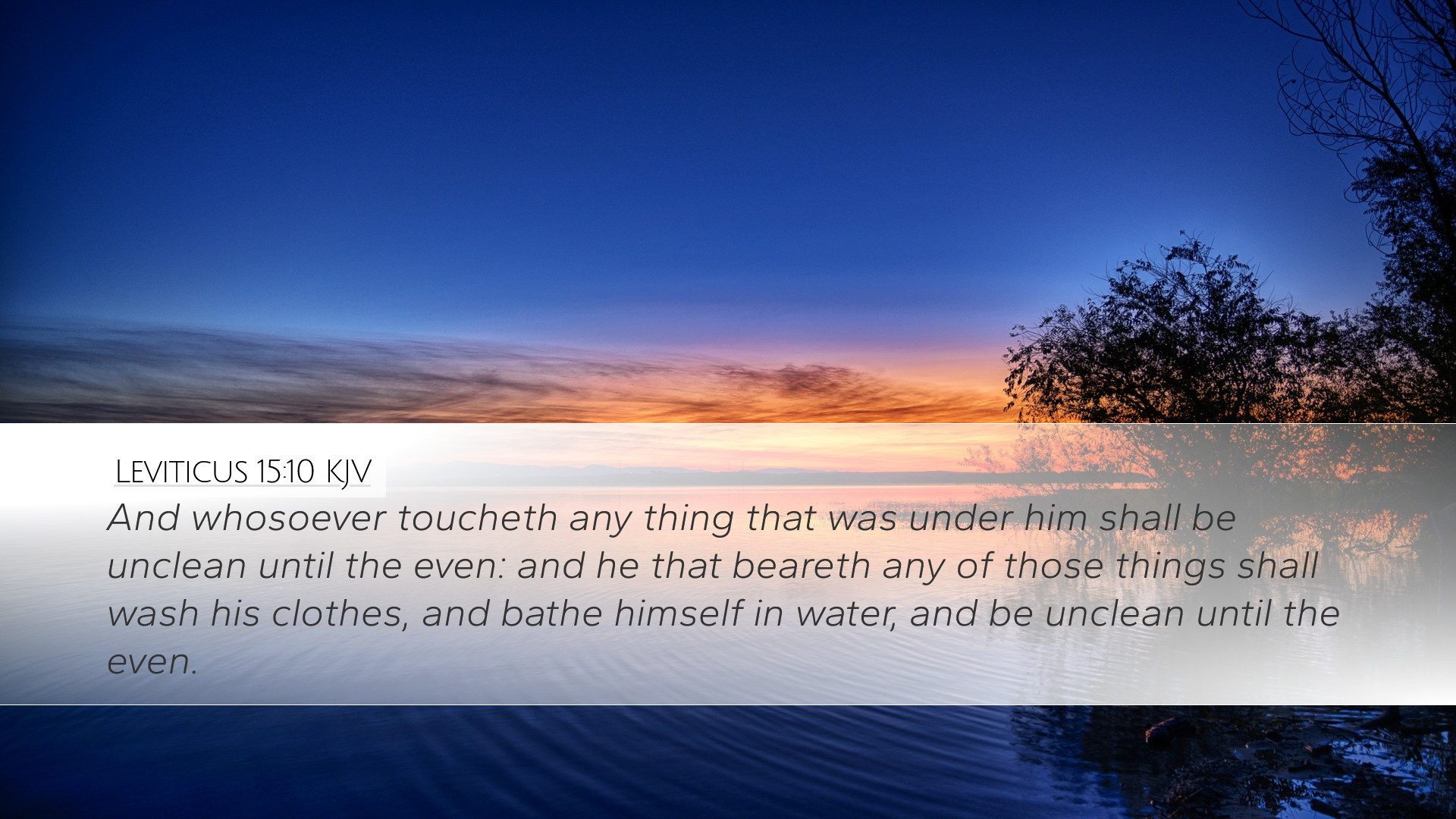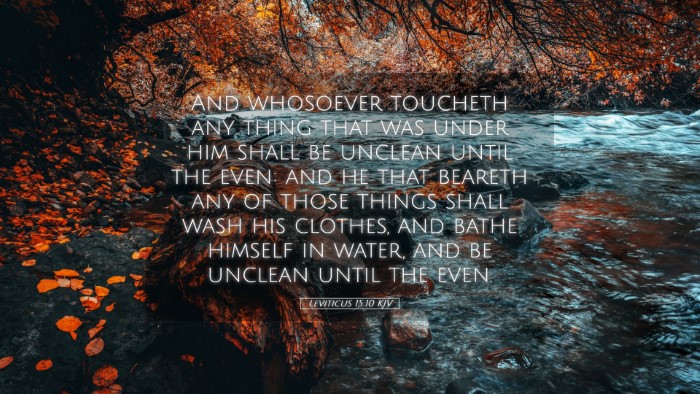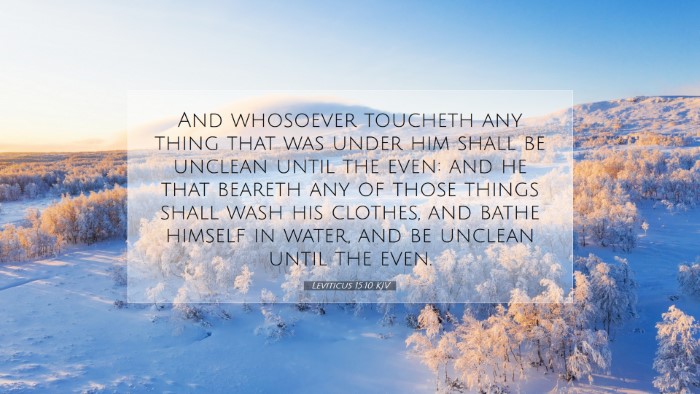Commentary on Leviticus 15:10
Verse Context: Leviticus 15:10 states, "And whoever touches anything that was under him shall be unclean until the evening; and he who carries them shall wash his clothes and be unclean until the evening." This verse is part of the larger context in Leviticus where God outlines the laws of cleanliness and defilement, particularly addressing issues of bodily discharges which render individuals and items unclean.
Understanding the Significance of Cleanliness
The laws regarding cleanliness outlined in Leviticus serve multiple purposes:
- Cultural and Social Purity: The Israelites were to maintain a distinct identity, and these laws served to set them apart from surrounding nations.
- Health Considerations: Many cleanliness laws have practical health benefits, ensuring the well-being of the community.
- Spiritual Reflection: Cleanliness laws are often seen as reflective of spiritual purity. The act of maintaining physical cleanliness parallels the call to maintain spiritual purity before God.
Exegesis of Leviticus 15:10
This verse particularly highlights the consequences of coming in contact with items or individuals deemed unclean. The regulations suggest a deep understanding of communal responsibility and the implications of one's actions on others.
Insights from Matthew Henry
Matthew Henry notes that the law details how defilements could spread from one person to another through touch, indicating the seriousness with which God considered ritual purity. He emphasizes the sanctity of the community and how any defilement could disrupt the divine order set by God among His people.
Insights from Albert Barnes
Albert Barnes elaborates on the concept of ceremonial uncleanness and its implications. He contends that the Israelites were made acutely aware of their status before the Holy God, urging them to recognize that both physical and spiritual cleanliness were essential. He points out that this verse serves as an admonition to maintain vigilance and accountability in one’s spiritual life.
Insights from Adam Clarke
Adam Clarke discusses the practical aspects of the laws concerning cleanliness. He provides insight into how these laws would maintain societal order and hygiene. Clarke also reflects on the spiritual analogy suggested here, where the physical act of cleaning represents purification from sin, encouraging believers to recognize the spiritual significance behind these regulations.
Theological Implications
The laws found in Leviticus, including 15:10, can be seen as foundational for understanding the holiness of God and His demands of His people. The New Testament often reflects these themes, with Jesus introducing a paradigm shift regarding cleanliness and purity, focusing on the heart rather than merely outward observances.
Profiles of Cleanliness and Uncleanliness
In this verse, we observe the importance of boundaries regarding cleanliness. The unclean individual becomes a metaphor for sin and separation from God. Here are some key points:
- Spiritual Consequence: Touching something unclean makes one unclean until evening—a reminder of the ongoing nature of sin and the need for restoration.
- Community Impact: The emphasis on washing clothes signifies the social ramifications of personal sin, as the community's purity is interconnected.
- Call to Vigilance: The directive to remain aware of one's cleanliness reflects God's desire for His people to remain spiritually vigilant.
Practical Applications for Today
As modern believers reflect on Leviticus 15:10, several applications can be considered:
- The Importance of Holiness: Just as the Israelites were called to be clean, Christians are called to live holy lives separate from sin.
- Responsibility to Others: The impact of one’s sin can affect the whole community. Believers are called to be aware of their actions and their consequences.
- Symbolism of Cleanliness: The path to spiritual cleanliness involves repentance and recognition of one’s condition before God, leading to a deeper relationship with Him.
Conclusion
In conclusion, Leviticus 15:10 provides profound insights into the nature of purity, community responsibility, and God's holiness. By examining the thoughtful commentaries of biblical scholars like Matthew Henry, Albert Barnes, and Adam Clarke, we see that these ancient laws remain relevant today, challenging believers to live in awareness of their spiritual condition and its effects on their community. The rigorous standards God sets forth highlight His desire for His people to strive for holiness, which calls for careful reflection and a commitment to spiritual growth.


